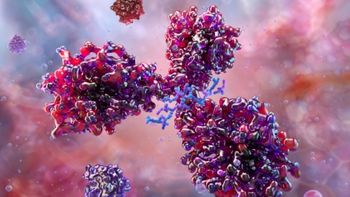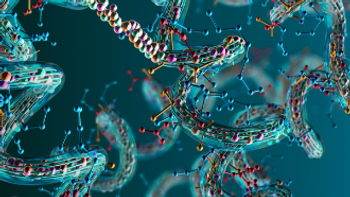
- BioPharm International-05-01-2020
- Volume 33
- Issue 5
Shaping IR Spectroscopy into a Powerful Tool for Biopharma Characterizations
In this peer-reviewed article, the authors present a series of experimental studies showcasing the performance of MMS in secondary-structure biopharma characterization and compare it with conventional FTIR data.
Microfluidic modulation spectroscopy (MMS) is a novel automated infrared spectroscopic technique with high sensitivity and repeatability. Here, the authors present a series of experimental studies showcasing the performance of MMS in the secondary structure characterization of biopharmaceutical products and compare the MMS results with the conventional Fourier transform infrared data.
Click
for a PDF of the article.
Peer-reviewed
Submitted: Dec. 9, 2019
Accepted: March 9, 2020
About the authors
Dipanwita Batabyal*, dbatabya@amgen.com, is scientist at Attribute Sciences-Higher Order Structure Group, Amgen, and Mats Wikström*, matsw@amgen.com, is principal scientist at Higher Order Structure, BR&C, Attribute Sciences, Amgen. Libo Wang is principal application scientist and Jeffrey Zonderman is chief commercial officer at RedShift Bioanalytics.
*To whom correspondence should be addressed.
Article Details
BioPharm International
Vol. 33, No. 5
May 2020
Pages: 42–47
Citation
When referring to this article, please cite it as F. Mirasol, “Shaping IR Spectroscopy into a Powerful Tool for Biopharma Characterizations,” BioPharm International 33 (5) 2020.
Articles in this issue
almost 5 years ago
Considerations for Closures in Cold Storagealmost 6 years ago
Fluid Handling Considerationsalmost 6 years ago
How Fast Is Too Fast?almost 6 years ago
Building Better Bioassaysalmost 6 years ago
Modern Drug Manufacturing Key to COVID-19 Responsealmost 6 years ago
Starting a Career in the Bio/Pharmaceutical Industryalmost 6 years ago
Good Automation Practices for Remote Operationsalmost 6 years ago
Mass Flow ControllersNewsletter
Stay at the forefront of biopharmaceutical innovation—subscribe to BioPharm International for expert insights on drug development, manufacturing, compliance, and more.




